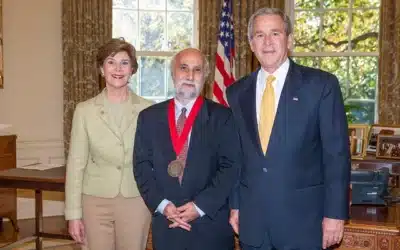For many, and even for self-proclaimed progressives, Donald Trump’s pick to be secretary of defense, retired Marine Corps Gen. James Mattis, is a light in the darkness—a kind of oasis in the midst of a vast reactionary desert. And so it seems, all of us can now breathe a sigh of relief: After all these weeks, there’s finally an adult in the room.
What’s not to like? Mattis, as has been reported, is not just a warrior, he’s an intellectual. Entire websites are dedicated to his pithy bon mots (“be polite, be professional, but have a plan to kill everybody you meet”), which, along with his skillful handling of troops in Afghanistan and Iraq, gave him the sobriquet “Mad Dog.” His gruff and outspoken attitude has Pattonesque appeal. But he’s also accumulated a library of thousands. And, as we’re gushingly reminded, he carries a copy of Marcus Aurelius’ Meditations wherever he goes, a sure sign that he’s a smart guy.
But all the ink spilled on Mattis as a snubber of convention, gifted combat commander, sophisticated strategist, ardent bibliophile and reader of dead Romans misses the most important fact about him: Mattis is a Marine. The Marines aren’t just another service, like the Army, Air Force or Navy. They are a tightknit military tribe, with their own beliefs, myths and philosophies. They view themselves as elite, different from the other services. They’re the closest thing our military has to a cult.
The military officials I spoke with say that Mattis is the quintessential Marine; it defines everything he does and believes, from how he treats his soldiers and disciplines his commanders to how he views the world. Most critically, perhaps, for the United States and its future, Mattis has embraced the Marine Corps’ longstanding grievance against Iran, one that goes back to the 1980s.
In fact, Mattis’ anti-Iran animus is so intense that it led President Barack Obama to replace him as Centcom commander. It was a move that roiled Mattis admirers, seeding claims that the president didn’t like “independent-minded generals who speak candidly to their civilian leaders.” But Mattis’ Iran antagonism also concerns many of the Pentagon’s most senior officers, who disagree with his assessment and openly worry whether his Iran views are based on a sober analysis or whether he’s simply reflecting a 30-plus-year-old hatred of the Islamic Republic that is unique to his service. It’s a situation that could lead to disagreement within the Pentagon over the next four years—but also, senior Pentagon officials fear, to war.
“It’s in his blood,” one senior Marine officer told me. “It’s almost like he wants to get even with them.”






























